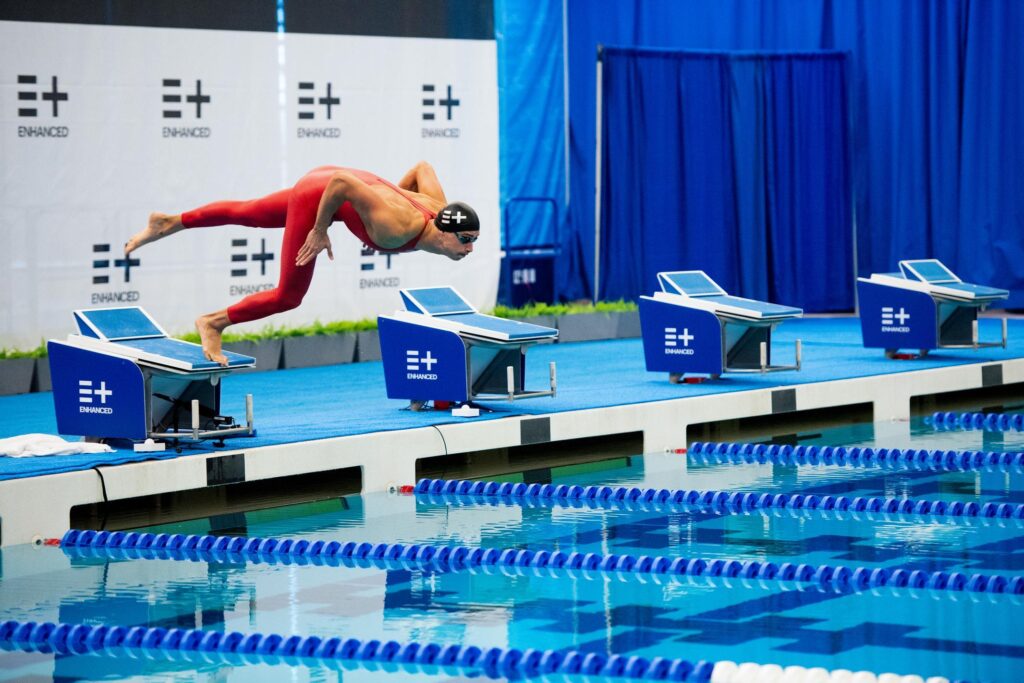Enhanced Games has filed a staggering $800 million lawsuit against World Aquatics, the World Anti-Doping Agency (WADA), and USA Swimming, escalating a fierce legal battle that could reshape the landscape of competitive sports oversight. The lawsuit, announced earlier this week, accuses the governing bodies of unfair practices and alleged collusion aimed at undermining the legitimacy and operations of the Enhanced Games organization. As tensions rise between emerging athletic platforms and established regulatory authorities, this high-profile case spotlights ongoing conflicts over athlete rights, doping regulations, and the future of international competition.
Enhanced Games Alleges Anticompetitive Practices in Massive $800M Legal Battle
Enhanced Games has launched an aggressive legal campaign, filing an $800 million lawsuit against World Aquatics, the World Anti-Doping Agency (WADA), and USA Swimming. The lawsuit claims these organizations engaged in anticompetitive behavior that unfairly restricted the participation and growth of alternative competitive platforms in the aquatic sports community. According to Enhanced Games, these entities have implemented rules and policies that create barriers for new events, allegedly prioritizing their control over market dynamics rather than fostering open competition.
Central allegations outline tactics that include:
- Exclusive licensing agreements that limit the use of official waterways and competition venues.
- Restrictions on athlete participation designed to disqualify competitors affiliated with non-sanctioned events.
- Obstruction of sponsorship deals for emerging aquatic championships aimed at undermining market entry.
The case will delve into the impact of these practices on innovation and athlete freedom, highlighting the tension between established regulatory bodies and emerging sports ventures attempting to redefine competitive swimming and aquatic events.
| Organization | Role in Lawsuit | Claimed Violation |
|---|---|---|
| World Aquatics | Regulatory Authority | Market control via exclusivity |
| WADA | Anti-Doping Oversight | Participation restrictions enforcing monopoly |
| USA Swimming | National Federation | Blocking athlete involvement in alternate games |
Legal Experts Analyze Potential Impact on Sports Governance and Doping Regulations
The ongoing $800 million lawsuit filed by Enhanced Games against World Aquatics, the World Anti-Doping Agency (WADA), and USA Swimming has sent ripples through the sports governance ecosystem. Legal experts emphasize that this case could set a pivotal precedent for how international sports bodies enforce doping regulations, potentially triggering reforms in regulatory oversight and transparency. At the core of the dispute lies the allegation that current anti-doping frameworks may unfairly restrict athlete innovation and competition, challenging longstanding interpretations of fairness and athlete rights within global sports governance.
Key implications highlighted by analysts include:
- Reevaluation of doping policies: Increased scrutiny might compel governing bodies to refine the definition and scope of prohibited substances and methods.
- Enhanced athlete representation: Potential institutional changes could empower athletes with greater voice in anti-doping rule-making processes.
- Legal accountability of sports organizations: Heightened transparency and justification requirements may emerge for enforcement actions.
| Potential Outcome | Impact on Stakeholders |
|---|---|
| Policy Modernization | Adapted rules supporting innovation while maintaining fairness |
| Stronger Athlete Rights | More balanced dispute resolution and governance input |
| Greater Legal Scrutiny | Increased transparency and liable enforcement practices |
Recommendations for Reforming Oversight and Ensuring Fair Competition in Aquatic Sports
To restore integrity in aquatic sports, it is imperative to establish an independent regulatory body that operates transparently and is free from conflicts of interest. This entity should be empowered to monitor and enforce compliance with anti-doping rules and ethical standards, ensuring a level playing field for all athletes. Furthermore, implementing standardized, sport-wide protocols for athlete testing and appeals would promote consistency and fairness. These measures must be supported by enhanced data-sharing agreements between organizations, promoting accountability and deterring manipulation of results or rankings.
Additionally, a multipronged approach to reform must focus on:
- Increased stakeholder engagement: Involving athletes, coaches, and independent experts in policy-making to ensure diverse perspectives.
- Clearer governance structures: Defining roles and responsibilities to eliminate overlaps and bureaucratic inertia.
- Transparency in funding: Regular public disclosures of financial flows to reduce undue influence.
| Reform Aspect | Expected Outcome |
|---|---|
| Independent Oversight | Unbiased enforcement of rules |
| Standardized Testing | Consistency and reliability in doping controls |
| Stakeholder Inclusion | Balanced decisions reflecting athlete interests |
| Financial Transparency | Reduced corruption risk |
Future Outlook
As the $800 million lawsuit filed by Enhanced Games unfolds, the sports world will be watching closely to see how the legal battle impacts the governance of competitive athletics. With high-profile defendants including World Aquatics, the World Anti-Doping Agency (WADA), and USA Swimming, the case brings to the forefront ongoing debates about doping regulations and athlete rights. The outcome may have far-reaching consequences for the future of competitive sports and the policies that shape them. Further developments will be reported as the story progresses.




